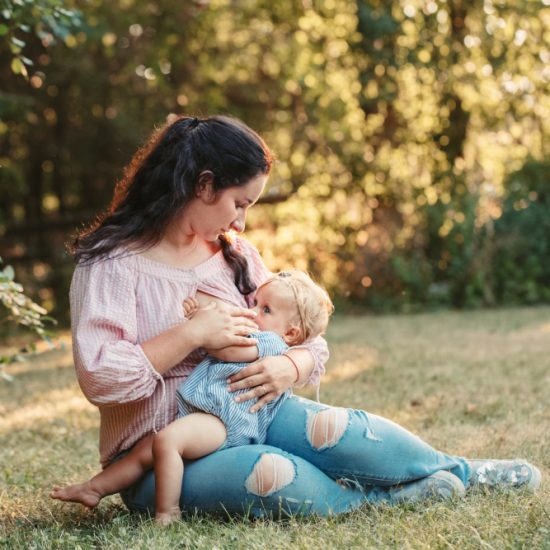If you’re a mom and you’re breastfeeding (or not), you’re probably making somebody mad.
In March of this very year, Grammy Award-winning singer-songwriter Michelle Branch took to Twitter to share a story with her followers about being mom-shamed for discreetly breastfeeding her 6-week old infant on a public playground where her toddler was playing.
Currently, many American mothers are being shamed for not breastfeeding in the midst of a nationwide formula shortage, while a recent Philly Voice article noted that others are being shamed for breastfeeding too long.
Meanwhile, last month, Forbes shared an article that described a disturbing trend in sexualizing breastfeeding mothers on social media platforms.
Breastfeeding in public may be more socially accepted in our current climate, but breastfeeding shame hasn’t gone away; it’s just diversified.
What does science say about breastfeeding?
The American Academy of Pediatrics recommends exclusive breastfeeding for the first six months of a newborn’s infancy and acknowledges continued breastfeeding benefits for up to years, especially for the mother. Long-term breastfeeding appears to protect mothers against diabetes and high blood pressure as well as breast and ovary cancer. However, Dr. Joan Younger Meek, MD, MS, RD, FAAP, FABM, IBCLC, lead author of the AAP’s July 2022 report “Breastfeeding and the Use of Human Milk” also noted:
“Not everyone can breastfeed or continue breastfeeding for as long as desired for various reasons, including workplace barriers. Families deserve nonjudgmental support, information and help to guide them in feeding their infant.”
The new guidelines have been met with skepticism by some parents who feel that they’re out of touch with the lived experience of parents. Too many mothers in America face overwhelming barriers when it comes to breastfeeding, most notably lack of support at home, in their communities, at work, and even sometimes from their own physicians.
The intention of the new guidelines wasn’t to put more pressure on mothers, however. In a recent interview with Salon, Dr. Lori Feldman-Winter, chair of the AAP Section on Breastfeeding, noted that one reason for the update was to help destigmatize breastfeeding after one year where there was a mutual desire by mother and baby.
How can mothers cope with breastfeeding pressures?
In her Psychology Today article “My Breast, My Choice,” psychotherapist and mother Kara Hoppe, MA, MFT, had the following to say concerning the AAP’s new guidelines and breastfeeding shame in general:
“This country has a long way to go before it can be considered an inviting environment for nursing parents. In the meantime, I believe the choice to breast/chestfeed is ultimately up to nursing parents. It’s your breast (or chest), your choice. But it’s also helpful to weigh all your options from both a practical and an emotional perspective before you settle on a choice.”
Hoppe recommends that mothers distinguish between insiders (e.g., herself, perhaps her spouse or other close support) and outsiders (e.g., the AAP, your pediatrician) when making choices about breastfeeding. It’s important to listen to medical experts, but your decisions regarding breastfeeding (including where and how long you choose to do so) should ultimately be made by insiders. Only you know the impact breastfeeding takes on your mental and physical health, the needs of your baby, and how accommodating your circumstances are. It makes sense that you be the one to make that final decision without a single shred of shame.
Our company is rooted in activism on behalf of nursing and pumping moms.
Milk N Mamas Baby is owned and operated by women who have experienced the challenges and joys of balancing breastfeeding with work and family. We lobbied for insurance to cover breastfeeding equipment before the ACA required it to ensure that moms who choose not to breastfeed have an affordable, easy alternative. Our women-lead team is proud to advocate for mamas and babies every day, and we think you should be proud of all you do, too.
